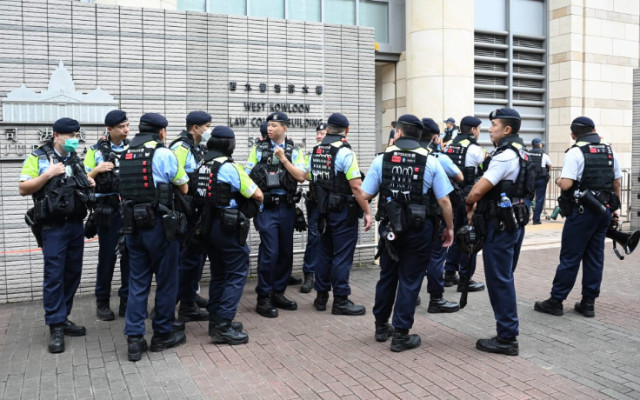Hong Kong has discovered 14 pro-democracy activists guilty of subversion in the largest China-imposed National Security Law.
They included former lawmakers Leung Kwok-hung and Helena Wong, journalist-turned-campaigner Gwyneth Ho, and ordinary Hong Kongers who joined the mass protests of 2019 such as nurse Winnie Yu.
They were among the 47 activists charged with trying to "overthrow" the government by organising an unofficial primary in 2020 to pick candidates who can run for office.
They would have "[created] a constitutional crisis for Hong Kong" if they had indeed been elected to the legislature, the court ruled on Thursday.
Rights groups and several Western countries have condemned the verdict, repeating concerns that the prosecutions were "politically motivated".
Reacting to the development, the EU Foreign Affairs spokeswoman, Nabila Massrali said, "The conviction marks a further deterioration of fundamental freedoms and democratic participation in Hong Kong."
Australia had "expressed our strong objections to the Hong Kong authorities on the continuing broad application of national security legislation to arrest and pressure pro-democracy figures, opposition groups, media, trade unions and civil society," Foreign Minister Penny Wong said.
On Thursday, three High Court judges Andrew Chan, Alex Lee, and Johnny Chan agreed with the prosecutors' argument that had the pro-democracy candidates been elected they would have tried to "veto or refuse to pass any budgets" introduced by the Hong Kong government.
This and other actions, the court said, would have led to "serious interfering in, disrupting or undermining the performance of duties and functions in accordance with the law by the (Hong Kong) government".
As evidence, the court cited letters and campaign materials found at the defendants' homes and on their devices when they were arrested more than three years ago.
The court acquitted two of the defendants - former district councillors Lawrence Lau and Lee Yue-Shun - saying it "cannot be sure" that they were "parties to the scheme" or that they "had the intention to subvert the state's power". But the justice department said they would appeal the acquittals.
The 47 make up some of the most prominent names in the pro-democracy movement, going back to 2014, when thousands protested for free and fair elections.
"They encapsulate the diverse and universal yearning for democracy and freedom among Hong Kong's citizens," Simon Cheng, who was accused of violating the NSL, told the BBC. He fled Hong Kong and has since been granted asylum in the UK.
The case has drawn huge attention as yet another test for Hong Kong’s civil liberties under Beijing’s rule. Along with the trial of billionaire Jimmy Lai, it has spotlighted the growing criticism that the National Security Law (NSL) has been used to crush dissent. But China says the law restored stability to the city in the wake of the 2019 protests and is essential to maintaining order.




















